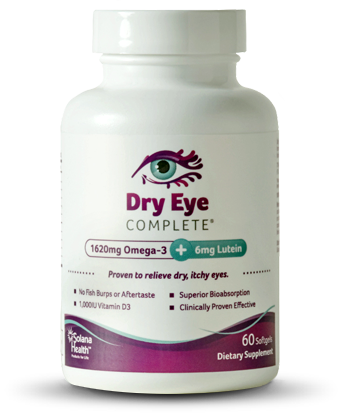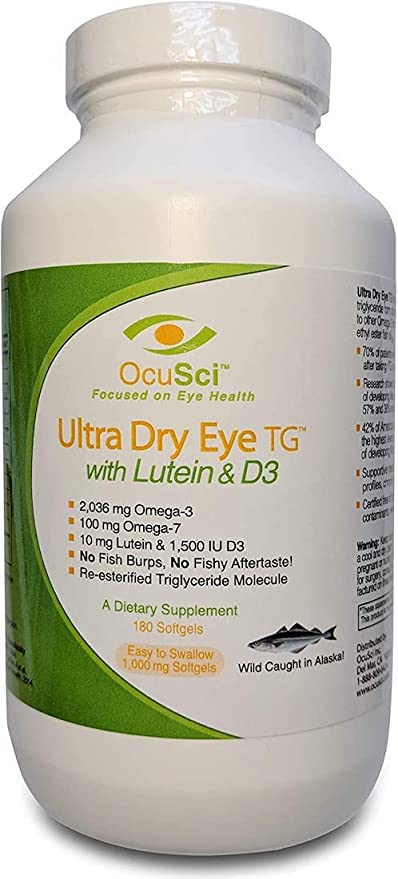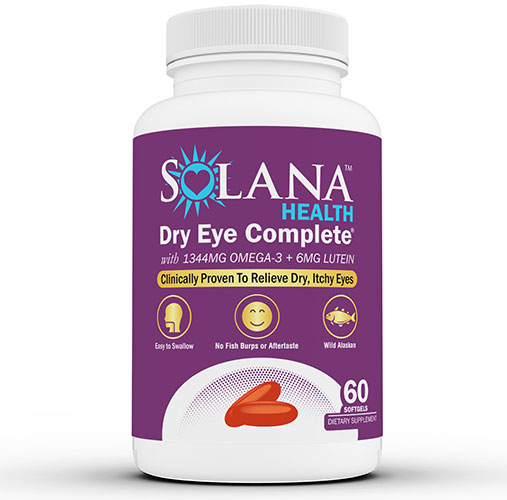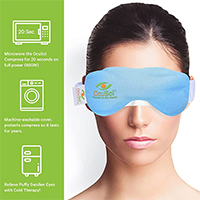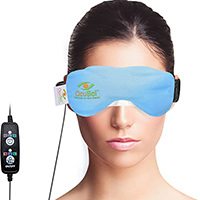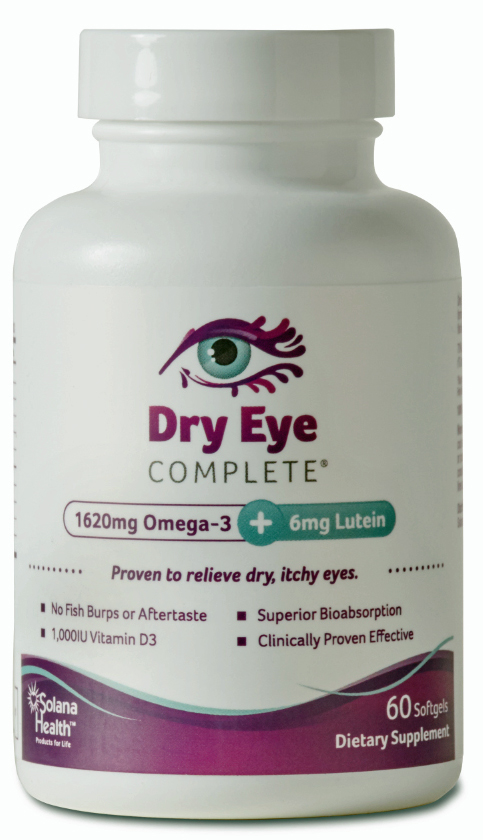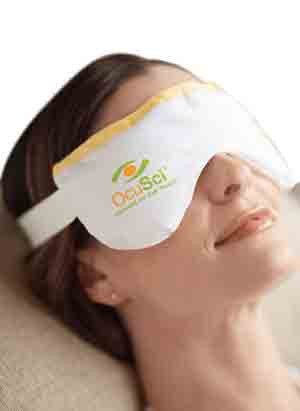Dry eye syndrome, an issue that is known in medical circles as keratoconjunctivitis sicca, is a very common and regularly occurring eye problem that can be caused by a wide variety of factors, from external and environmental factors like wind or dry weather, to internal problems like autoimmune diseases.
Dry eye syndrome currently affects around 6% of the population, and in many cases the intensity of the problem becomes more pronounced with age.
Understanding Dry Eye Syndrome
There’s a reason why humans spend so much time blinking. Whenever you close your eyes, even only for a moment, a combination of substances that are used to create tears coat the cornea, leading to various essential health benefits. Not only do tears improve the comfort of your eyes, meaning that you don’t suffer from burning or stinging sensations, but they also wash away the debris and bacteria that can get caught in the eyes, helping to keep your vision clear and healthy.
Tears are also responsible for reducing your risk of infection whenever your eyes are exposed to foreign contaminants, which is far more often than you might think. This vital substance is a key component in keeping your eyes healthy and maintaining good vision. However, people who suffer from dry eye syndrome are unable to form as much tears as they should, or cannot get the right combination of components for their tears. By producing ineffective tears, people with dry eyes are often more prone to ocular irritation and infection, a condition which is both uncomfortable, and can also lead to further vision problems, too.
The Dry Eye and Omega Oil Match
Since inflammation is one of the key factors which play a role in the prevalence of dry eye syndrome, many researchers have begun to look deeper into the effect that fish oils might have upon sufferers of this disorder.
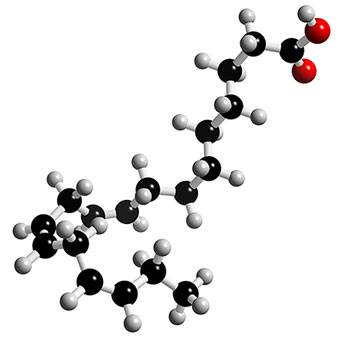
The long-chain omega-3 fatty acids in fish oils, have been linked to the reduction of inflammation in a number of different ways. In fact, considerable research show that the acids in fish oils: docosahexaenoic acid (DHA), and eicosapentaenoic acid (EPA) can improve the condition of various eye disorders, particularly macular degeneration.
Since research into the connection between eye health and omega-3 fatty acids has begun, many people who have started to take fish oil supplements have found that they experience a number of benefits associated with the substance, particularly in regards to inflammation and brain health.
Dealing with the Dry Eye Issue
Typically, the majority of people who suffer from some form of dry eye syndrome or chronic issue of dry eye utilize special drops or artificial tears to moisturize the eye surface. In fact, there is a special medicated eye drop that can be prescribed which helps to promote the production of tears in the eyes, thereby reducing the symptoms of dry eye. At the same time, some individuals choose to wear glasses or contact lenses that have been specifically designed to help maintain moisture in the eyes. However, besides medical solutions to dry eye syndrome, some people have found home remedies and natural supplements can also work to reduce the discomfort of dry eye.
Many health experts recommend taking fish oil regularly, between two and three times a day, as a way of mitigating the symptoms associated with dry eye. It’s worth noting that the experts generally recommend using fish oil as a supplemental treatment in combination with other solutions such as drops and ointments. In most circumstances, though fish oil can be incredibly helpful at reducing the discomfort associated with dry eye and preventing your risk of suffering in the future, using it on it’s own may not provide adequate relief.
Why Omega Fish Oil?
It might be hard to imagine that fat is an essential part of human diet, but the truth is that it is vital to our health. Without some fat, our bodies wouldn’t be able to function as they should, and without the right fats in our diet, even our eye health can suffer. Fatty acids are some of the most important building blocks in fat, and they are essential for the normal functioning of cells, nerves, organs, and muscles. These fatty acids are also responsible for the production of compounds that help to regulate heart rate, blood pressure and more.
Some fatty acids are essential to our diet because our bodies are unable to produce them alone.
Two of the main forms of essential fatty acid are omega-6 fatty acids, and omega-3 fatty acids. According to studies, omega-3 fatty acids are some of the most essential nutrients to stock up on when it comes to maintaining good eye health.
Studies have proven that both EPA and DHA may be responsible for helping your eyes to produce more effective tears. However, where you get your EPA and DHA is important too. For example, while flax seeds can provide these fatty acids, they can only offer doses in very small amounts.
In fact, research suggests that you can only convert about 5% of the omega found in flax seeds into EPA and DHA. On the other hand, fish oil doesn’t force your body to convert anything, meaning you can get more of it into your system.
Logically, it only makes sense that a source rich in the nutrients required for combating dry eye would be the most useful at reducing the symptoms of the problem. The more nutrient rich the substance is, like omega fish oil, the less you will need to take to feel the benefits.
Featured Omega-3 Product Supplement
Dry Eye Complete
- Clinically Proven to Relieve Dry Eyes
- 1620mg Omega-3, 6mg Lutein, 1,000IU Vitamin D3
- Sourced from highly sustainable fisheries: wild caught Nordic sardines and anchovies
- 100% All Natural, Non GMO, Gluten Free, Dairy Free. Tested & Certified Free of Contaminants
- NO fish burps or aftertaste guaranteed
- Optometrist Recommended!
- Consumption of Omega 3 is recommended by American Eye Institute.
- Great for MILD & SEVERE dry eye
How Much Fish Oil Should You Take?
Although the U.S. National Library for Medicine recommends anywhere between two and three servings of fish oil each day, it does not include any recommendations for serving size. However, some studies have indicated that a total of 1,000 milligrams daily might be particularly effective when it comes to relieving the symptoms of dry eye syndrome. Because fish oil has no potential negative side effects to worry about, people can consume as much as they want without having to worry about taking too much.
Below is a table of foods containing Omega-3 in grams.
| Food | Omega-3 amount in grams |
| Atlantic Salmon | 3.89 grams |
| Pacific Mackerel | 3.25 grams |
| Sardines | 2.83 grams |
| Chinook Salmon | 2.68 grams |
| Cod Liver oil | 2.43 grams |
For better eye health and fewer problems with dry eye syndrome, try a few simple lifestyle changes.
For example, replace cooking oils that are high in omega-6 with olive oil, and ensure that your diet contains a large amount of vegetables and fruits. Avoid eating foods cooked in hydrogenated oils, and limit your consumption of red meat, while staying away from fried foods and trans-fats.
Sticking to a healthy diet that contains plenty of omega-3 and a variety of nutritious foods while limiting your intake of potentially dangerous substances should significantly increase your odds of better health, and good vision.
References:

